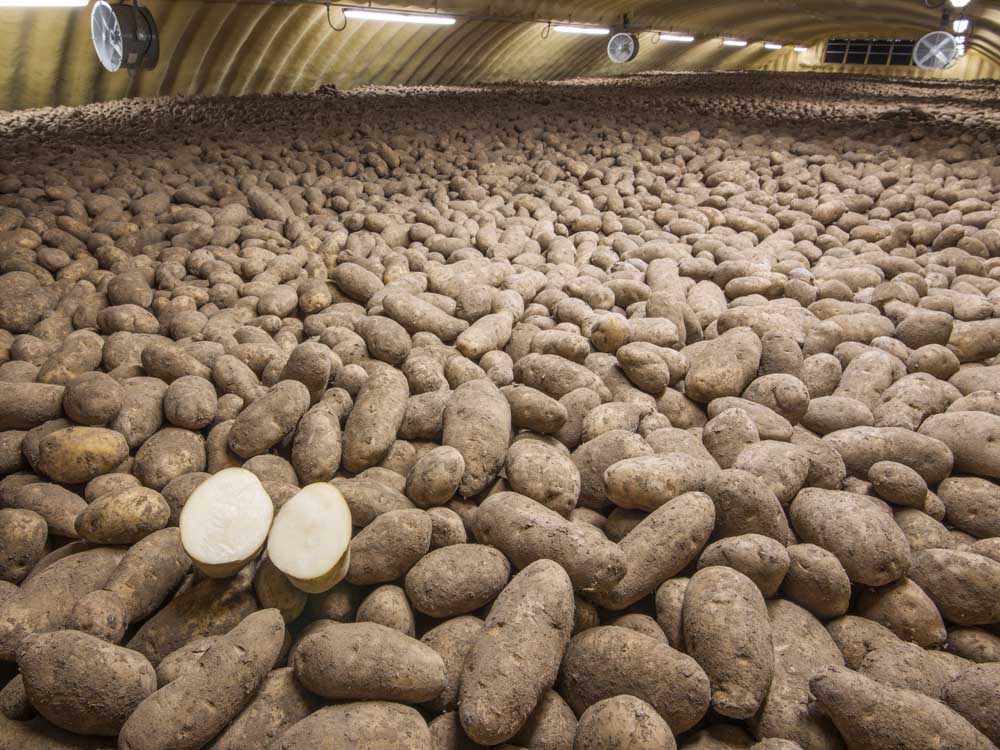Genetically modified potato gets OK
Published 12:00 am Saturday, November 8, 2014

- J. R. Simplot Company via The New York TimesGenetically modified Innate Russet Burbank potatoes, designed by J.R. Simplot, have been genetically engineered to eliminate a potentially harmful ingredient that emerges in high heat.
A potato genetically engineered to reduce the amounts of a potentially harmful ingredient in french fries and potato chips has been approved for commercial planting, the Department of Agriculture announced Friday.
The potato’s DNA has been altered so that less of a chemical called acrylamide, which is suspected of causing cancer in people, is produced when the potato is fried.
The new potato also resists bruising, a characteristic long sought by potato growers and processors for financial reasons. Potatoes damaged during harvesting, shipping or storage are unusable.
The biotech tubers were developed by J.R. Simplot Co., a privately held company based in Boise, Idaho, which was the initial supplier of frozen french fries to McDonald’s in the 1960s and is still a major supplier. The company’s founder, Simplot, who died in 2008, became a billionaire.
The potato is one of a new wave of genetically modified crops that aim to provide benefits to consumers, not just to farmers as the widely grown biotech crops like herbicide-tolerant soybeans and corn do. The nonbruising aspect of the potato is similar to that of genetically engineered nonbrowning apples, developed by Okanagan Specialty Fruits, which are awaiting regulatory approval.
But the approval comes as some consumers are questioning the safety of genetically engineered crops and demanding that the foods made from them be labeled. Ballot initiatives calling for labeling were rejected by voters in Oregon and Colorado this week, after food and seed companies poured millions of dollars into campaigns to defeat the measures.
The question now is whether the potatoes — which come in the Russet Burbank, Ranger Russet and Atlantic varieties — will be adopted by food companies and restaurant chains. At least one group opposed to such crops has already pressed McDonald’s to reject it.
Genetically modified potatoes failed once before. In the late 1990s, Monsanto began selling potatoes genetically engineered to resist the Colorado potato beetle. But the market collapsed after big potato users, fearing consumer resistance, told farmers not to grow them. Simplot itself, after hearing from its fast-food chain customers, instructed its farmers to stop growing the Monsanto potatoes.
This time around could be different, however, because the potato promises at least potential health benefits to consumers. And unlike Monsanto, Simplot is a long-established power in the potato business and presumably has been clearing the way for acceptance of the product from its customers.
Simplot hopes the way the potato was engineered will also help assuage consumer fears. The company calls its product the Innate potato because it does not contain genes from other species like bacteria, as do many biotech crops.
Rather, it contains fragments of potato DNA that act to silence four of the potatoes’ own genes involved in the production of certain enzymes. Future crops — the company has already applied for approval of a potato resistant to late blight, the cause of the Irish potato famine — will also have genes from wild potatoes.
“We are trying to use genes from the potato plant back in the potato plant,” said Haven Baker, who is in charge of the potato development at Simplot. “We believe there’s some more comfort in that.”
That is not likely to persuade groups opposed to such crops, who say altering levels of plant enzymes might have unexpected effects.
Doug Gurian-Sherman, a plant pathologist and senior scientist at the Center for Food Safety, an advocacy group, said the technique used to silence the genes, called RNA interference, was still not well understood.
“We think this is a really premature approval of a technology that is not being adequately regulated,” he said, adding that his group might try to get a court to reverse the approval of the potato.








